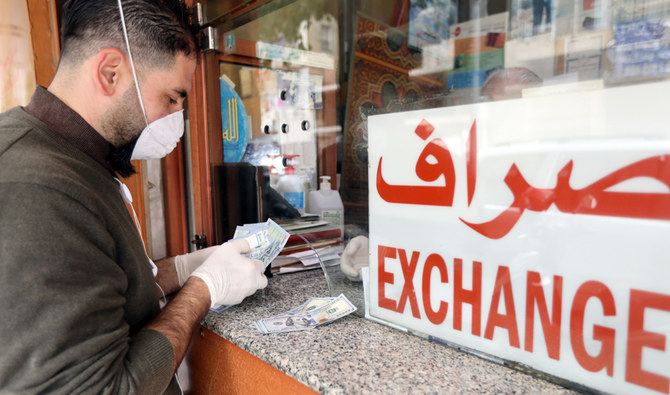
by arabnews.com — NAJIA HOUSSARI — BEIRUT: Lebanon is divided over the use of masks in the battle against coronavirus disease (COVID-19), with the government and medical professionals at odds over how useful they are in restricting the spread of the disease. The country has reported 17 deaths and 520 confirmed cases, an increase of 12 new cases in 24 hours. Last month, on March 15, the government imposed steps to check the spread of the virus. Measures included social distancing and wearing face masks and gloves. Doctors in TV interviews have, however, discouraged people from wearing face masks while outside because it sent the wrong message about safety and hand hygiene. “A customer would buy an average of seven masks a week in light of the circular that imposed wearing masks when going to a supermarket, bank or while driving,” pharmacist Robert Tenn told Arab News. He said the rise in the US dollar against Lebanon’s currency had led to a significant rise in the price of masks. “A box containing 50 masks is being sold for LBP100,000 ($66) when its earlier price never exceeded LBP15,000. We are referring to the regular medical mask and not the N95K, which is firmer and more effective in protecting against coronavirus and other viruses if used correctly. But nothing is a substitute for washing hands.” Lebanon was back to importing its needs from China after China resumed its exports, he added.
Architect Edgard Mekssas uses 3D printers to produce these masks. (Supplied) “There are new types of locally manufactured masks in Lebanon, and these are cheaper than the imported ones, but they lack medical standards, so I do not buy them to sell them to people. These are the product of personal efforts, and some are made of cloth that can be penetrated by viruses.” Many types of face masks have been seen in Lebanon, in different colors and designs such as khaki to suit military uniforms and black for security forces. There are also masks with logos of political parties. A Nabatiyeh-based media man, Samer Wehbe, said that the masks bearing party slogans are available in the market. He said the Amal movement is promoting green-colored masks, which is the color of the movement. “They may also use these masks with their slogan later,” he added. A resident of the southern suburb, Hassan, said: “There are street vendors offering colored masks at low prices but they are of very poor quality.” He did not rule out the possibility of political parties using their slogans on locally manufactured masks. “But people feel a bit shy using such masks publicly,” he added. The Internal Security Forces Directorate on Saturday tweeted a video showing inmates at Roumieh Central Prison making medical masks to be used by security forces and prisoners when needed. Others have also begun making masks.
Architect Edgard Mekssas said there was a Swedish design that protected the eyes, nose, and mouth and he used 3D printers in his office to recreate it. “We have developed the technology so that the robot-like machines that used to produce a mask every two hours started producing it within 48 minutes,” Mekssas told Arab News. The mask comprises a piece of clear plastic that covers the entire face and is attached to a plastic arch that surrounds the head. Mekssas said his mask did not contain the spongy material that picked up germs and that his product had a medical certificate saying it did not transmit germs. His printers were working around the clock, producing 155 masks a day, and the products were being sold at a nominal price on beiruting.com.
He contacted the Lebanese Dental Association to distribute the masks provided they donate enough money for purchasing the raw materials required for the masks. Mekssas shared his experience online so that others could benefit from it for free. “It is time for social solidarity and raising awareness to ensure the safety of society,” he added. Meanwhile, planes carrying Lebanese expats returning from coronavirus-hit countries are due to land on Sunday and authorities are trying to plan for their quarantine. Repatriation efforts have been delayed due to concerns about virus-testing procedures and the large number of returnees involved. Fears over health risks have also been raised by Lebanese residents in communities where isolation and quarantine centers have been earmarked to house returning expats.



